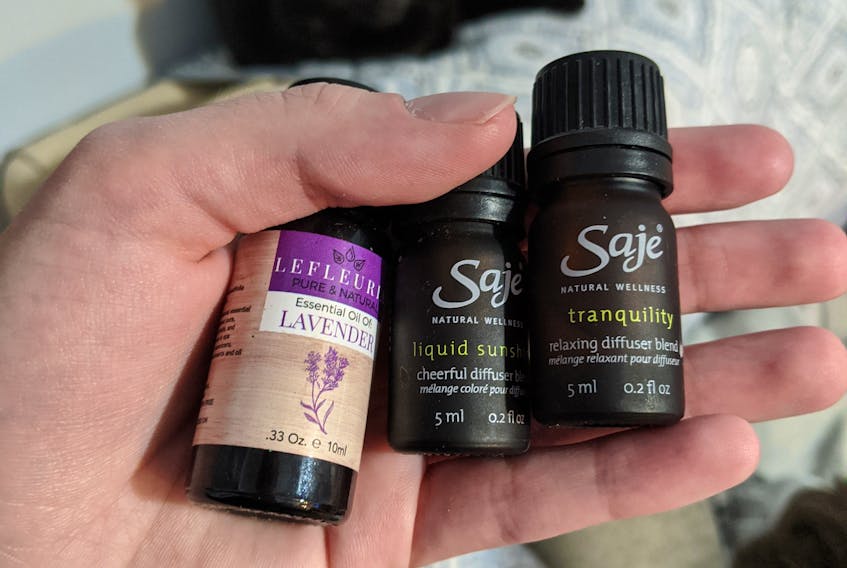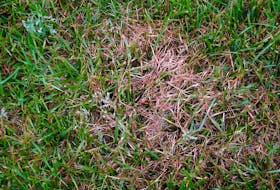Is it just me, or do others treat their pets like they children, and occasionally better than other human beings (don’t sue me, I can’t help it that they’re so darn cute)?

I have two cats, Jinx, a grey tabby that either loves me and hates everyone else, and Luna, a black kitten who loves belly rubs and human food (she sits and begs at the table like a dog).
Now, I love them. They’re so cute, furry and hilarious and are just my best friends. There’s a tub full of cat toys Luna always goes to, Jinx has a little hut when she wants to hide away and I cater to them hand and foot.
With all of that in mind, when I was gifted a diffuser as a house-warming gift two winters ago, I was stoked! I wanted one to try out the ‘all the rage’ essential oils and put those holistic theories to the test.
BUT – my world was rocked (not literally, ultimately, I was very calm about this) when I Googled “what essential oils are harmful to animals.” The list included lavender (my favourite), cinnamon, tea tree and several other old faithfuls.
Don’t take my word for it – recently, I chatted with Dr. Maggie Brown-Bury, an emergency veterinarian with the Veterinary Specialty Centre of Newfoundland and Labrador in St. John’s, and the province’s representative to the Canadian Veterinary Medical Association.
“Essential oils are tricky. It depends on the oil and how the animal is exposed. There’s not a lot of research on oils and pets and a lot of it is anecdotal.”
‘Anecdotal’ meaning a lot of accounts of pets being affected by scents or essential oils is story-based, not research or fact-based.
Brown-Bury has been a practicing vet for 10 years. She worked in general practice for eight of those years before moving to emergency vet medicine.
Regarding oils, she said ingestion is always a worry.
Diffusers essentially put small particles of the oils into the air, she explained. Cats can have allergies and have a more sensitive respiratory system than humans, and birds are even more sensitive than felines.
“One hundred per cent, don’t use scented products if you have birds. If they are inhaling the oils, we are exacerbating respiratory issues.”
She said it seems the list of oils that could be an issue has increased, so anything that is aerosolizing the oils is best not to use.
“If cats come in contact with oils, it can cause respiratory issues, runny eyes and sneezing, general lethargy, chemical irritation is there’s direct contact, some oils can cause kidney or liver problems, their appetite can decrease, vomiting or diarrhea.”
She said cats have the tendency to hide their illness as much as possible.
“When your cat gets sick, you end up racking your brain about what could have caused it,” she said.
Tea tree oil has been long established as toxic to animals. But in addition to that, cats don’t like citrus scents. They like mint, but that can be a problem, she said.
“Some mint can be irritating to people and cats. They might like it because it’s a relative of catnip, but it’s not something to put on your cat or use.”
She said a lot of the favourites and most popular oils are often bothersome to pets – eucalyptus, pine, cinnamon, lavender.
She said some companies have started to market as pet safe because there was an uproar when oils became popular.
Ultimately, however, it depends on the owner’s confidence level and how the products are being used.
“Don’t apply directly to pets. You can see quite easily if it irritates you, but you can’t as your pets if it’s overwhelming to them.”
One of her scent-related pet peeves is scented cat litter.
“It’s not scented for the cat. It’s scented for the human. If you can smell it, standing five feet or more above their litter box, imagine what it is like for them being so much closer to the source?”
The same can be said about plug-in scent diffusers.
“Are the pets avoiding the room where the item is plugged in? It could be overwhelming to them. Or for cats, if you put something scented where their litter boxes are, and it’s overwhelming they’re more likely to avoid that space and could be more prone to have accidents elsewhere. If I were to make the space unpalatable, they will have accidents elsewhere.”
Regardless of the source of the scent, anything that has the potential for spills or taken by chance because the pet could think it is a toy is something pet owners should keep in mind.
“If you’re still going to use a diffuser, put it in a safe, secure spot. You could also lessen the amount of oil that’s put in it. Put it in spots the cats won’t go, so they can’t walk along the surface, get the oils on their paws and then ingest the oil while they’re grooming themselves.”
Brown-Bury stressed to put candles in a place the cats can’t get them, or in a room where your pets aren’t allowed in (like the bathroom, with the door closed during a hot bath).
“I love scented candles and I tend to buy them from local shops, so I don’t always know what is going into them. But like anything, it comes down to being cautious. If I can smell it clearly, they definitely can; the only difference is they can’t tell me when it bothers them.”
Sometimes, you just have to be more cognizant of the other animals in your home, she added.
After I hung up the phone with Brown-Bury, I relocated my diffuser to the top of the china cabinet (a place my cats won’t dare to go). I lit lightly scented candles as to not overwhelm my asthmatic lungs and my cats and secured any reed diffusers and any oils in places my cats can’t get to them. If you haven’t realized, I’ll move heaven and earth for my kitty cats.
Keep your aminals safe and do your research, be cognizant and remember they can’t tell you if they’re not feeling great, so handle with care.
Until next time, homebodies.
Millicent McKay is a Summerside-based journalist, columnist and blogger. She’s new to this interior decorating and making a house a home gig – but she’s a homebody determined to make every corner feel like… home! For more by her check out www.modernmillee.com and her Instagram page @modernmillee.
More Homebodies:









